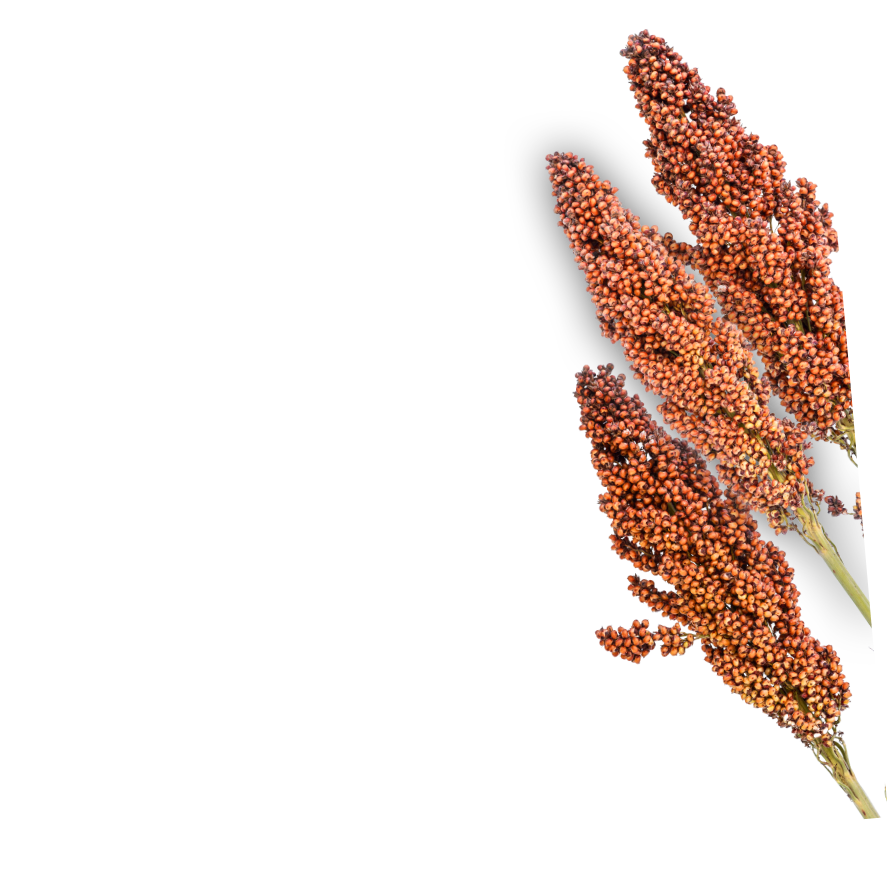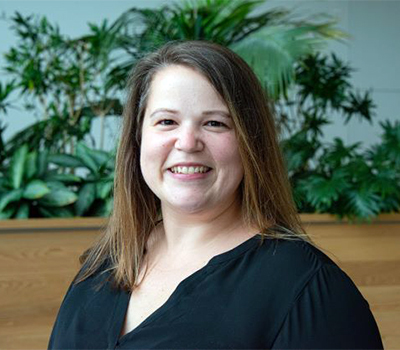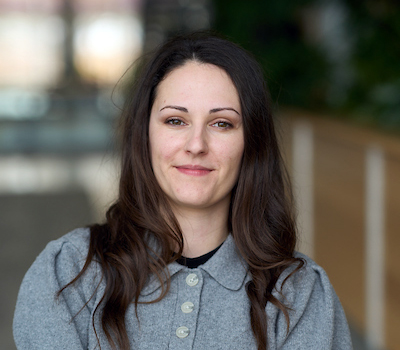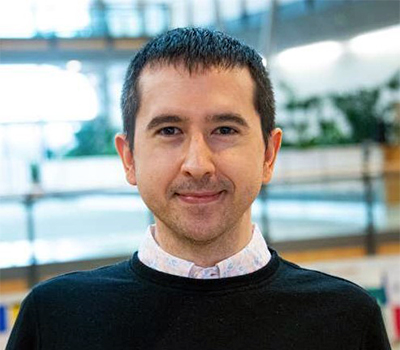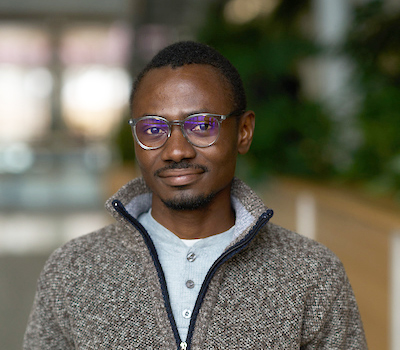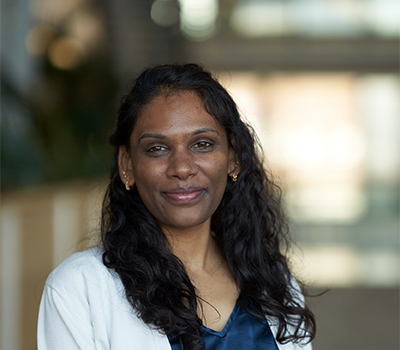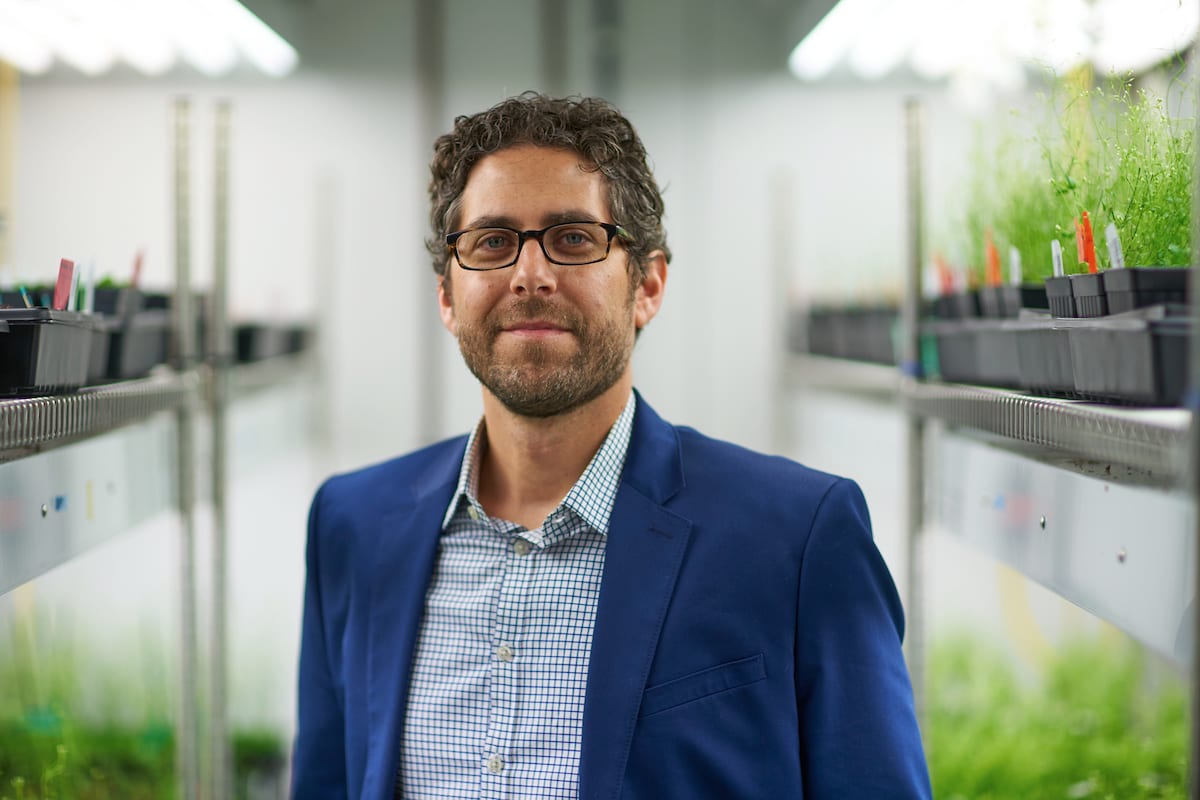Developing Smart Farm Technology
Dr. Nadia Shakoor, principal investigator and senior research scientist, firmly believes in being the change you want to see in the world.
When she comes across a problem that needs a solution, she doesn’t hesitate to create one herself. “It’s empowering and inspiring to know that as new challenges emerge that require novel technologies, I can discover how to build the solution myself,” says Nadia Shakoor. Teamwork, however, is an essential ingredient when creating innovative solutions to complex problems: “Successful execution of an innovative idea sometimes needs a team with a diversity of skills and perspectives that can become greater than the sum of its parts. Given the complexity of the systems we are designing, a multidisciplinary approach is ideal. We have a team of experts from fields including remote sensing, engineering, computer science and plant science all working together to take our projects from concept to reality.”
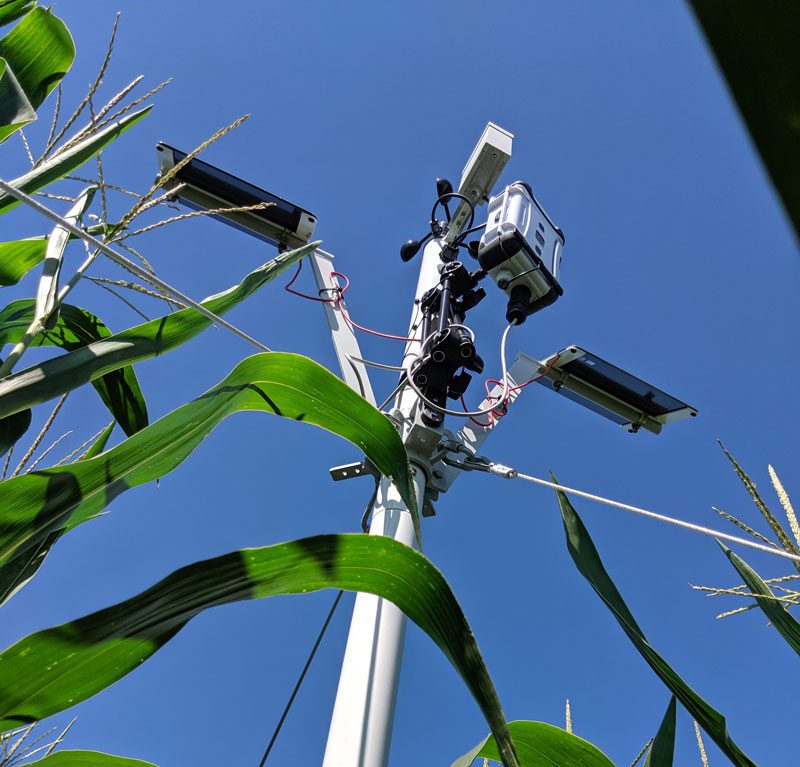
Today, Nadia is creating innovative sensor technology tools, called the PheNode and the FieldDock, that can be applied in the lab and in the field. The PheNode, a crop sensing and monitoring platform, was originally developed to help researchers more efficiently gather phenotypic data from the field, but it is also being put to use on the farm to help growers gather data to make more informed decisions. The FieldDock takes the PheNode a step further by incorporating an autonomous drone and wireless sensor networks in order to gather more data from across the field. Ultimately, Nadia hopes the PheNode and FieldDock will autonomously and more intelligently accelerate breeding with less human intervention.
Sorghum: Harnessing Resilience for Agricultural Sustainability
Nadia is an expert in sorghum genetics, a crop that is unique for its drought-tolerant and heat-resistant characteristics. As a research scientist in Todd Mockler’s Lab, Nadia served as the director for the TERRA-REF project, which included an outdoor phenotyping system in Maricopa, AZ, equipped with sensors to monitor crops growing in field conditions. The data gathered in the TERRA-REF project is being used to accelerate sorghum breeding, as well as provide resources to the plant science community.
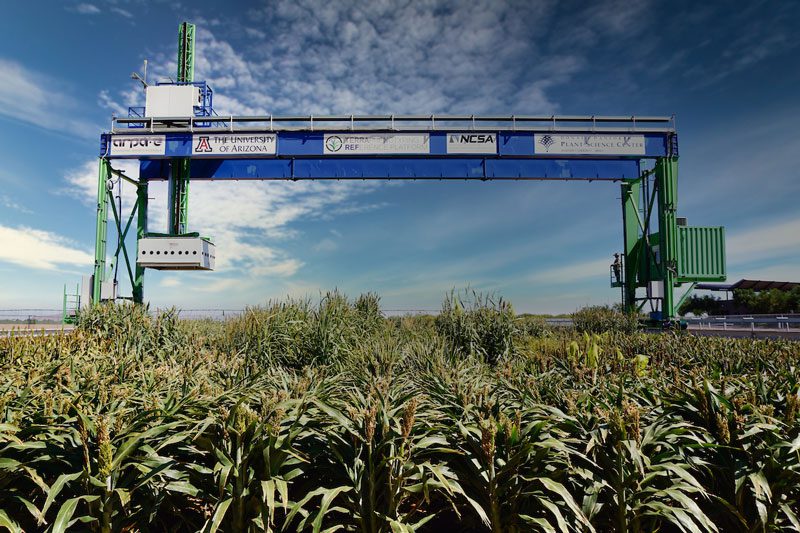
Dr. Nadia Shakoor is the director of the TERRA-REF project, an outdoor phenotyping system in Maricopa, AZ, equipped with sensors to monitor crops growing in field conditions. Pictured here is the TERRA-REF field scanner system scanning sorghum plants.
She was also the director of the Bill and Melinda Gates-funded Sorghum Genomics Toolbox, an initiative that also developed genomic and phenotyping tools for improved breeding in sorghum. These tools include regional cyber-physical platforms for remote sensing and imaging, and the use of digital devices for in field data capture. “I’m really proud of the sorghum genomic and phenotypic resources we’ve built,” says Nadia. “These resources are valuable for our breeding collaborators who want to use molecular markers for their traits of interest, including those for drought tolerance, water use efficiency, grain and forage quality traits, heat-stress and region-specific biotic stress tolerance.”
As a principal investigator, Dr. Nadia Shakoor is continuing her work with sorghum through a collaboration with the Salk Institute to identify and develop sorghum plants that can better capture and store atmospheric carbon. Nadia and her team will use high-tech sensors, including the PheNode and FieldDock, to monitor plants’ environments and growth in real-time. Using these sensors and other crop phenotyping methods, Shakoor’s team will identify varieties of sorghum that have the traits needed for optimized carbon capture and sequestration—such as large, deep root systems to store and move carbon into the surrounding soil. By developing sorghum plants that are more efficient at capturing carbon and storing it in the soil, Nadia and her collaborators aim to improve soil health and support long-term agricultural resilience.
Improving the Planet Through Plant Science
If successful, the Shakoor lab’s research will provide valuable tools for navigating the complex environmental changes shaping the future of agriculture. “My lab and I want to create high-performing sensor technology so we can increase the speed at which we breed and develop improved crops that are optimized for a changing environment,” explains Nadia. By creating improved crops at a faster pace, plant scientists could develop varieties with characteristics that can improve the environment, like carbon capture, but also help breed varieties that are more equipped to grow in less desirable or marginal environments.
It’s motivating to see so many researchers around the world working toward solutions to today’s environmental challenges,” says Nadia. “My team and I are driven by the same goal: to harness plant science in service of a healthier, more resilient future for future generations.”
